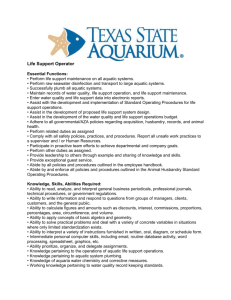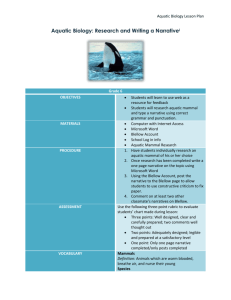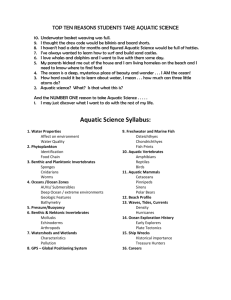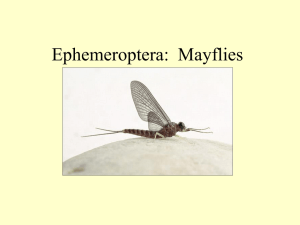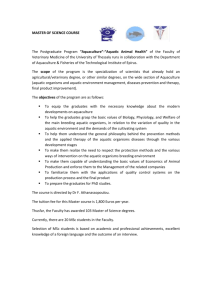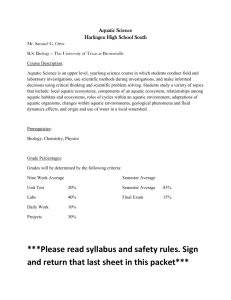Environmental Systems Syllabus 2005
advertisement
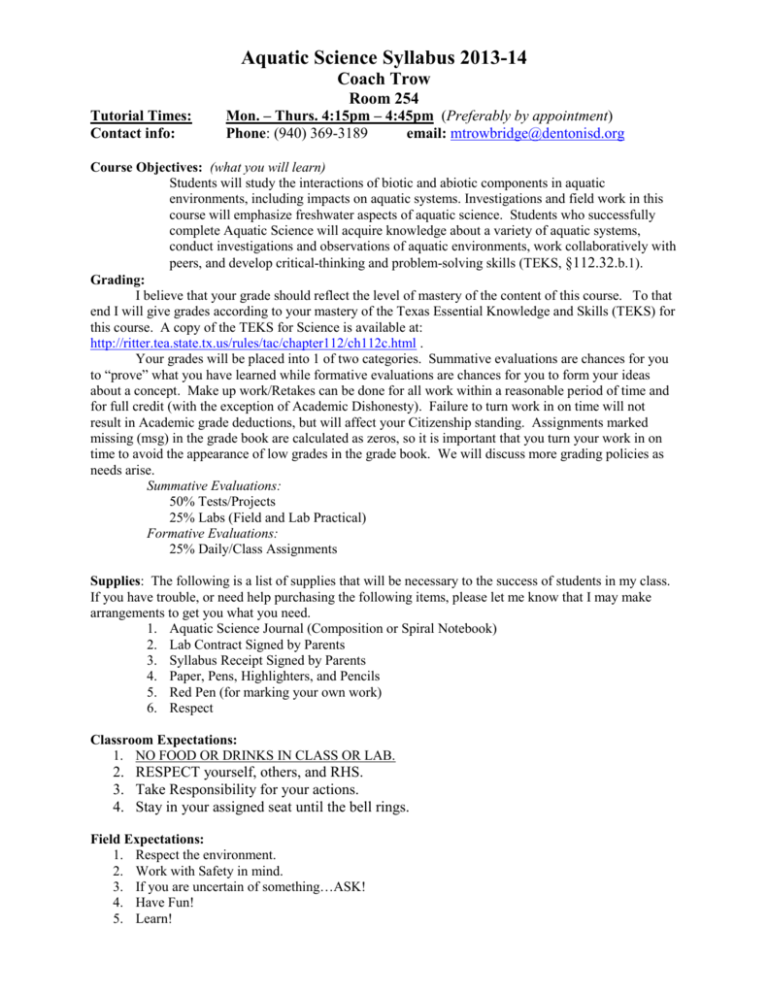
Aquatic Science Syllabus 2013-14 Coach Trow Room 254 Tutorial Times: Contact info: Mon. – Thurs. 4:15pm – 4:45pm (Preferably by appointment) Phone: (940) 369-3189 email: mtrowbridge@dentonisd.org Course Objectives: (what you will learn) Students will study the interactions of biotic and abiotic components in aquatic environments, including impacts on aquatic systems. Investigations and field work in this course will emphasize freshwater aspects of aquatic science. Students who successfully complete Aquatic Science will acquire knowledge about a variety of aquatic systems, conduct investigations and observations of aquatic environments, work collaboratively with peers, and develop critical-thinking and problem-solving skills (TEKS, §112.32.b.1). Grading: I believe that your grade should reflect the level of mastery of the content of this course. To that end I will give grades according to your mastery of the Texas Essential Knowledge and Skills (TEKS) for this course. A copy of the TEKS for Science is available at: http://ritter.tea.state.tx.us/rules/tac/chapter112/ch112c.html . Your grades will be placed into 1 of two categories. Summative evaluations are chances for you to “prove” what you have learned while formative evaluations are chances for you to form your ideas about a concept. Make up work/Retakes can be done for all work within a reasonable period of time and for full credit (with the exception of Academic Dishonesty). Failure to turn work in on time will not result in Academic grade deductions, but will affect your Citizenship standing. Assignments marked missing (msg) in the grade book are calculated as zeros, so it is important that you turn your work in on time to avoid the appearance of low grades in the grade book. We will discuss more grading policies as needs arise. Summative Evaluations: 50% Tests/Projects 25% Labs (Field and Lab Practical) Formative Evaluations: 25% Daily/Class Assignments Supplies: The following is a list of supplies that will be necessary to the success of students in my class. If you have trouble, or need help purchasing the following items, please let me know that I may make arrangements to get you what you need. 1. Aquatic Science Journal (Composition or Spiral Notebook) 2. Lab Contract Signed by Parents 3. Syllabus Receipt Signed by Parents 4. Paper, Pens, Highlighters, and Pencils 5. Red Pen (for marking your own work) 6. Respect Classroom Expectations: 1. NO FOOD OR DRINKS IN CLASS OR LAB. 2. RESPECT yourself, others, and RHS. 3. Take Responsibility for your actions. 4. Stay in your assigned seat until the bell rings. Field Expectations: 1. Respect the environment. 2. Work with Safety in mind. 3. If you are uncertain of something…ASK! 4. Have Fun! 5. Learn! Classroom and Field Rules: 1. All rules as written in Student Code of Conduct apply in this classroom and during Field Investigations. Make up / Late Work / Extra Credit: Athletes and Club Members: If you know you will miss because of a school sponsored event please get your work before you leave. Illness / Excused Absence: When you return, ask me for your work before class begins. I will tell you what I want you to do. Extended Illness: Email or call me for work so that you can stay “caught up” Extra Credit: Cannot be used for Academic grades, but can be utilized to improve Citizenship standing. Tentative Aquatic Science Course Outline: 1st 6 weeks: Lab and Field Safety, Geography and Geology, Water Chemistry 2nd 6 weeks: Environmental Chemical and Physical Cycles and Sustainability, Aquatic Microbiology, Oceanography 3rd 6 weeks: Oceanography, Aquatic Ecosystem Comparisons 4th 6 weeks: Aquatic Quality Indicators, Energy Flow Comparisons, and Limnology 5th 6 Weeks: Human Impacts on Aquatic Systems 6th 6 Weeks: Water Regulation Entities and Environmental Law
